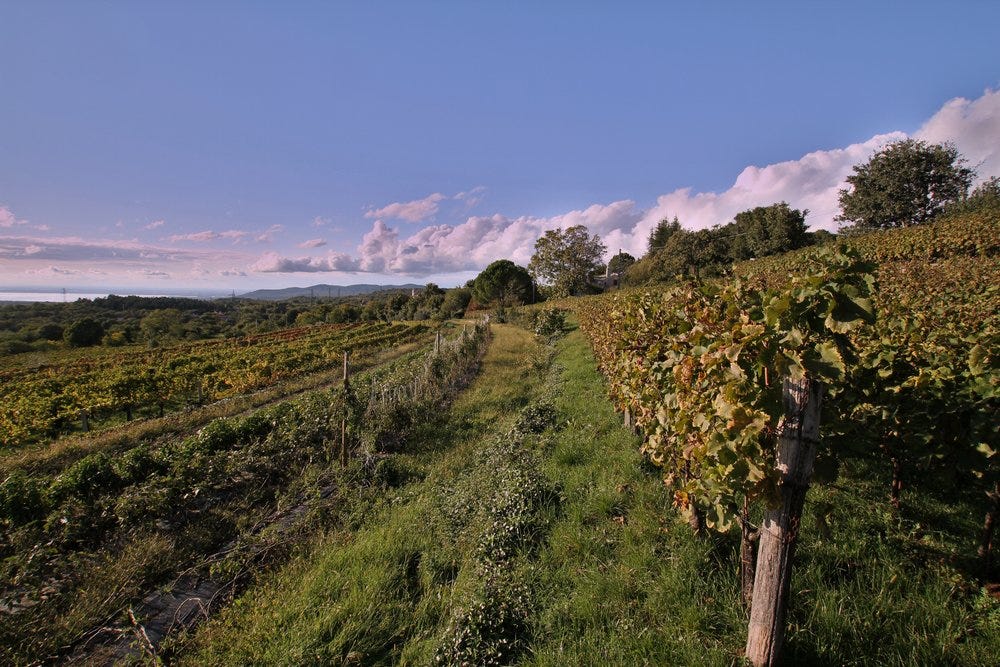Master of the Carso: Sandi Skerk - Ograde 2012
Sandi Skerk must have one of the most idyllically sited vineyards in Friuli, if not the world. Grassed terraces curve gently around the contours of the Carso hills, and lead your eye out towards the Adriatic coast. I'm profoundly happy to be standing by h
Every week, I select an orange wine (a white wine made with extended skin contact) that grabbed my attention. View the whole series here.

Sandi Skerk must have one of the most idyllically sited vineyards in Friuli, if not the world. Grassed terraces curve gently around the contours of the Carso hills, and lead your eye out towards the Adriatic coast. I'…
Keep reading with a 7-day free trial
Subscribe to The Morning Claret to keep reading this post and get 7 days of free access to the full post archives.



